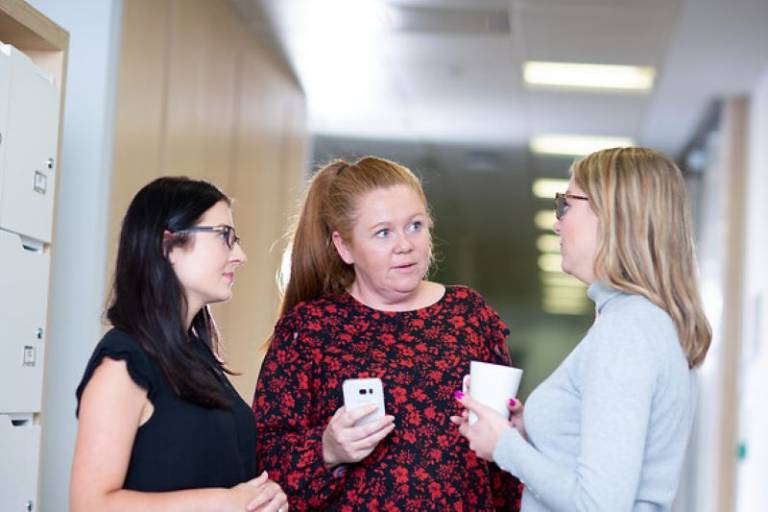New book explores embodiment and how people use their bodies to conduct research
20 May 2021
A new book exploring how researchers’ understanding and use of their bodies can impact research projects has been published today.

‘Embodied Inquiry: Research Methods’ by UCL Institute of Education (IOE) academic Dr Nicole Brown and Dr Jennifer Leigh (University of Kent) is written for researchers and looks at what needs to be considered when employing an embodied approach to conducting research.
An Embodied Inquiry is a form of qualitative research that offers space for the embodied experience of the researcher and the researched. Embodied Inquiry incorporates and brings into focus the unconscious thoughts, feelings, sensations, reflections, emotions and images that arise from and are understood within our bodies and minds.
Dr Brown and Dr Leigh demonstrate how researchers’ bodies, feelings, emotions and experiences affect the questions they are interested in, the ways in which they choose to approach finding out the answers to those questions, and the patterns they see in the data gathered as a result.
The book looks at four key research areas within Embodied Inquiry:
- lived experiences
- the researcher's body in the field
- the body as a communicator
- the body in interaction.
The book also explains how to design a study to account for these bodily and embodied experiences. It offers insights into how to analyse the types of data emerging from embodied approaches, and the important ethical considerations that need to be factored. The latter is particularly important as Embodied Inquiry tends to focus on exploring sensitive topics such as body image or health, illness and disability-related experiences.
The book provides a practical guide for students and academics wishing to expand on their research toolkit.
‘Embodied Inquiry: Research Methods’ was published by Bloomsbury on 20 May 2021.
Links
- Embodied Inquiry: Research Methods
- View Dr Nicole Brown’s research profile
- View Dr Jennifer Leigh's profile
- Department of Culture, Communication and Media
Image
Alejandro Walter Salinas Lopez for UCL Digital Media
 Close
Close

